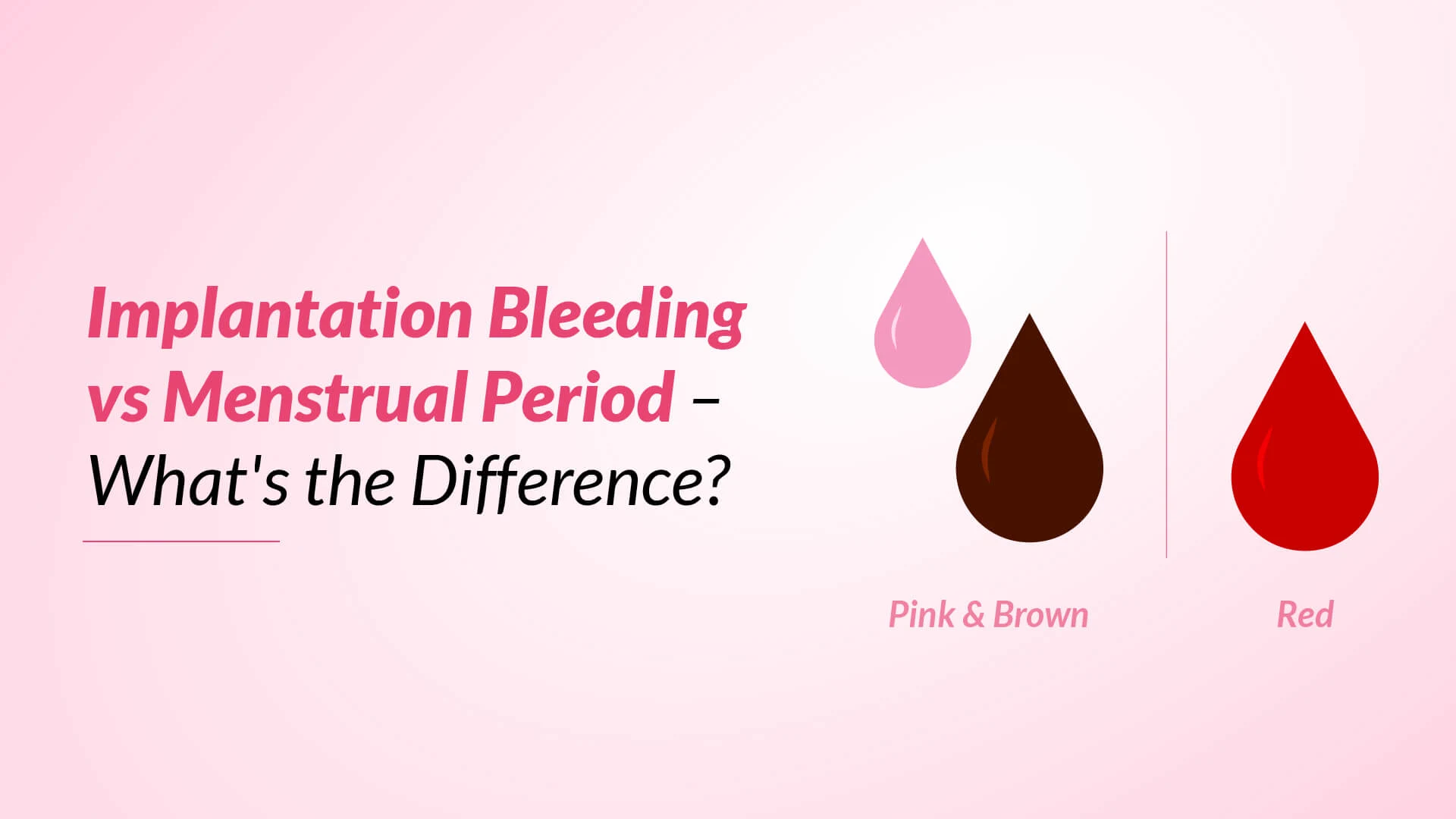Implantation bleeding and menstrual periods are two distinct occurrences that can confuse, especially for those trying to conceive or those experiencing irregular bleeding. While both involve vaginal bleeding, the timing, duration, and characteristics of the bleeding can vary significantly. Understanding the differences between implantation bleeding and a menstrual period is crucial for women to accurately interpret their body’s signals and make informed decisions about their reproductive health.
Related read: Tips for Maintaining Optimal Vaginal Hygiene
What is Implantation Bleeding?
Implantation bleeding, also known as spotting, is light vaginal bleeding that may occur when a fertilised egg (blastocyst) implants itself into the uterine lining. This process typically occurs 6-12 days after fertilisation, when a woman’s next period would be due. Implantation bleeding is seen as one of the earliest signs of pregnancy and can be easily mistaken for a light period.
When Does Implantation Bleeding Occur?
Implantation bleeding, often called pregnancy bleeding, usually occurs around six to twelve days after conception, which is roughly a week before a woman’s expected period. However, the timing can vary from woman to woman, and some may experience it earlier or later than this window. It’s important to note that not all women experience implantation bleeding, and its absence does not necessarily indicate a lack of pregnancy.
What is a Menstrual Period?
A menstrual period, also known as menstruation or a period, is a regular cycle of vaginal bleeding that occurs in women of reproductive age. It results from the uterine lining (endometrium) shedding when a pregnancy does not occur. Hormones regulate the menstrual cycle and typically last between 21-35 days, with the menstruation symptoms bleeding phase lasting 3-7 days on average.
Also read: Four Phases of Menstrual Cycle
Differences Between Implantation Bleeding and Menstrual Period
To better understand the distinction between implantation bleeding and a menstrual period, let’s examine the critical differences in a tabular format:
| Characteristic | Implantation Bleeding | Menstrual Period |
|---|---|---|
| Amount | Light spotting or brown discharge | Heavier flow |
| Colour | Pink, brown, or light red | Bright red or dark red |
| Clotting | Minimal or no clotting | Clotting may occur |
| Timing | 6-12 days after conception, before the expected period | Occurs at the end of the menstrual cycle |
| Duration | Typically lasts 1-3 days | Lasts 3-7 days on average |
| Cramping | Mild or no cramping | Cramping is common |
| Consistency | Lighter and more consistent | Heavier flow with variations |
Is Implantation Bleeding a Concern?
Symptoms of implantation bleeding are generally considered a regular and harmless occurrence during early pregnancy. However, if the bleeding is heavy and is associated with severe cramping or pain or persists for more than a few days, it is advisable to consult with a doctor. Excessive bleeding or cramping could be a sign of an ectopic pregnancy or other complications which require prompt medical attention.
Find Hope and Solutions for Female Infertility — Explore Our Comprehensive Services
IVF Treatment
IUI Treatment
ICSI Treatment
PICSI Treatment
Fertility Preservation Service
Blastocyst Culture & Transfer Treatment
Genetic Screening & Testing
Conclusion
While implantation bleeding and menstrual periods both involve vaginal bleeding, they have distinct characteristics that can help differentiate between the two. Implantation bleeding is typically lighter, shorter in duration, and occurs around the time a woman’s period would be due. In contrast, a menstrual period is usually heavier, lasts longer, and appears at the end of the cycle.
It’s important to note that not all pregnant women experience implantation bleeding, and its absence does not necessarily indicate a lack of pregnancy. Additionally, some women may experience early pregnancy bleeding that is not related to implantation. If you have any concerns or experience unusual bleeding, it’s always best to consult a gynaecologist for proper evaluation and guidance.
If you’re trying to conceive or have concerns about irregular bleeding, consider scheduling an appointment with a fertility specialist or gynaecologist. They can provide advice based on physical status and medical history. Don’t hesitate to seek professional help to understand your reproductive health better.





























